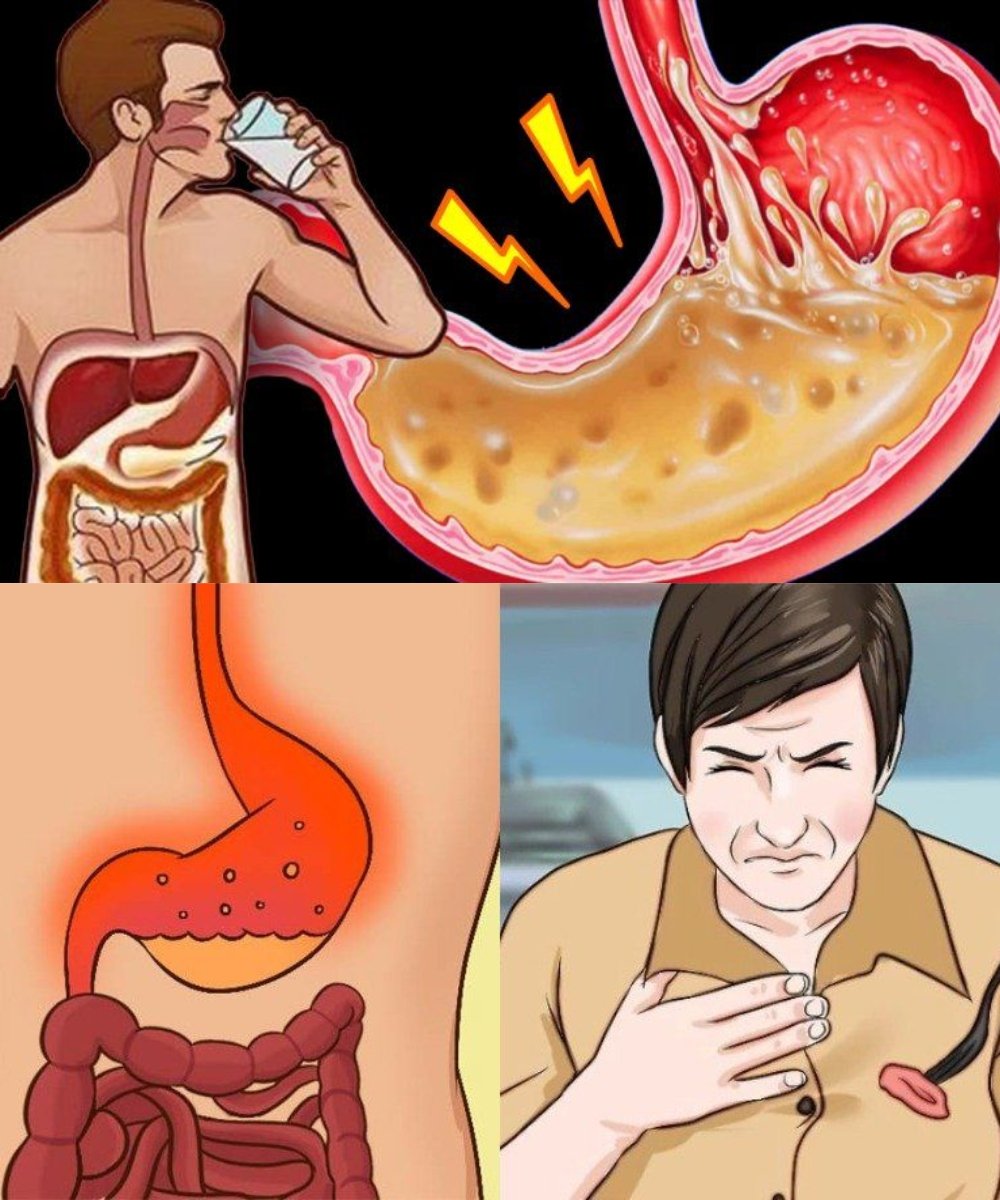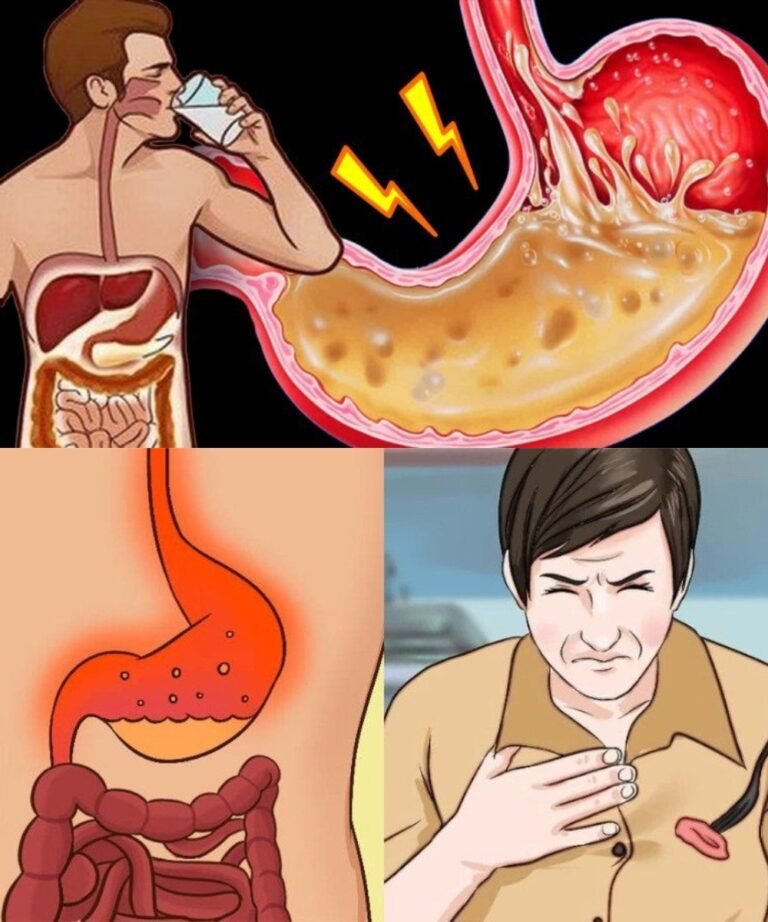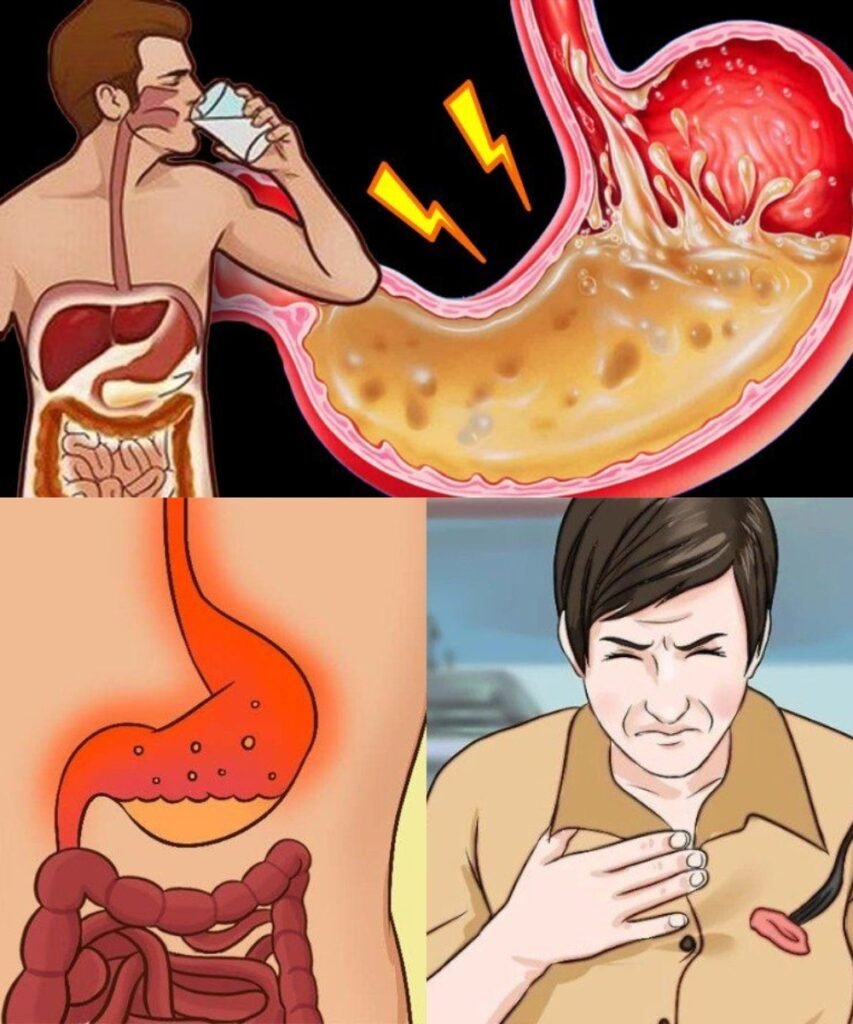🍽️ Eating Habits That Make Your Stomach and Gut Cry for Help 💭
Your digestive system is the foundation of your overall well-being.
When your stomach and intestines are working well, you feel energetic, light, and strong.
But when they’re overloaded with poor food choices or unhealthy eating patterns, they start asking for help — through bloating, gas, constipation, heartburn, or even chronic digestive issues.
Let’s explore the everyday habits that quietly harm your digestion — and what you can do to restore balance. 🌿
1️⃣ Overeating in One Sitting 🍔
Stuffing your plate might feel satisfying at first, but it overstretches your stomach and slows down digestion — leading to bloating, acid reflux, and fatigue.
💡 Tip: Choose smaller, balanced meals more often instead of heavy feasts that overwhelm your system.
2️⃣ Eating Too Fast ⏩
Rushing through meals means your food isn’t chewed properly, forcing your stomach to work harder. This often leads to gas, discomfort, and poor absorption of nutrients.
💡 Tip: Slow down. Chew each bite thoroughly and enjoy the experience — your gut will thank you.
3️⃣ Skipping Meals Regularly 🚫
Long gaps between meals can increase stomach acid, irritate the digestive lining, and even trigger gastritis over time.
💡 Tip: Try to eat at consistent times to help your stomach maintain a healthy rhythm.
4️⃣ Relying on Junk Food and Processed Snacks 🍟
Highly processed foods are loaded with sugar, sodium, and unhealthy fats that disrupt your gut flora and cause inflammation.
💡 Tip: Replace chips and fast food with whole, natural snacks like fruits, nuts, or vegetable sticks.
5️⃣ Too Much Coffee or Alcohol ☕🍷
While small amounts can be enjoyable, excess caffeine or alcohol irritates the stomach lining and increases acid production — setting the stage for gastritis or ulcers.
💡 Tip: Cut back, and always hydrate with water alongside your drink of choice.
6️⃣ Late-Night Meals 🌙
Eating heavy meals right before bed can slow digestion, cause heartburn, and interfere with your sleep quality.
💡 Tip: Have your last meal at least 2–3 hours before bedtime to allow your stomach to rest.
7️⃣ Lack of Fiber in Your Diet 🥖
A low-fiber diet slows intestinal movement, causing constipation and toxin buildup.
💡 Tip: Add more whole grains, vegetables, fruits, and legumes to keep your digestive system active and balanced.
8️⃣ Ignoring Food Intolerances 🚫🥛
If you’re sensitive to lactose, gluten, or other foods, continuing to eat them can lead to bloating, cramps, and chronic digestive discomfort.
💡 Tip: Pay attention to how your body reacts and avoid foods that trigger symptoms.
9️⃣ Eating While Stressed 😰
Stress diverts blood flow away from digestion, leading to indigestion, nausea, or even irritable bowel syndrome (IBS).
💡 Tip: Take a few deep breaths, relax your shoulders, and eat mindfully. Calm meals digest better.
🔟 Not Drinking Enough Water 💧
Water helps move food smoothly through the intestines and prevents constipation. Without it, digestion slows and toxins accumulate.
💡 Tip: Drink enough water throughout the day — especially between meals to aid digestion.
🌿 Final Reflection
Your stomach and intestines are your body’s silent messengers — when they’re unhappy, your whole system feels it.
Over time, poor eating habits can quietly wear down your digestion, immunity, and energy levels.
By eating mindfully, choosing natural foods, staying hydrated, and listening to your body’s cues, you can restore balance, comfort, and lasting vitality.
✨ Remember: Your digestive system is always communicating with you — don’t ignore its call for help.














